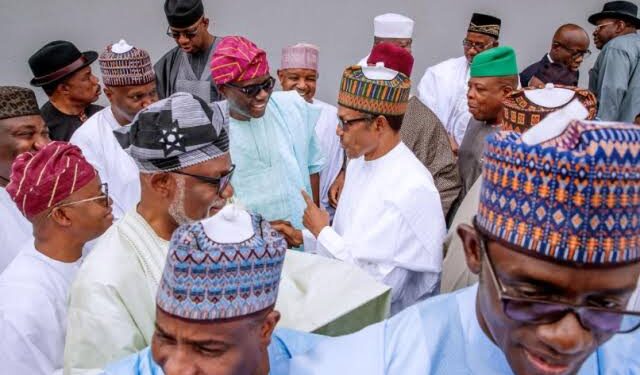Socio-Economic Rights and Accountability Project (SERAP) has sent Freedom of Information requests to President Muhammadu Buhari and 36 state governors urging them to “disclose details of proposed ‘security votes’ spending in your 2021 appropriation bills to ensure the security and welfare of Nigerians, and to explain the measures your governments are putting in place to prevent the misuse and embezzlement of public funds in the name of security votes.”
SERAP said: “In the wake of the abduction of over 300 students from the Government Science Secondary School, Kankara, Katsina State, and ongoing security challenges in several parts of the country, the time has come to demonstrate transparency and accountability in the spending of public funds meant to secure people’s lives and property.”
In the FoI requests dated 26 December, 2020 and signed by SERAP deputy director Kolawole Oluwadare, the organization said: “Disclosing details of spending as security votes for 2021 would serve to engage the Nigerian people in an honest conversation about the security challenges confronting the country, and what the federal and state governments are doing to respond to them. This is a legitimate public interest matter.”

SERAP also said: “While SERAP understands that authorities may keep certain matters of operational secrets from the people in the name of national security, there is no constitutional or legal basis to hide basic information on public spending from the people.”
SERAP expressed “concerns that the intense secrecy and lack of meaningful oversight of the government’s spending of security votes have for many years contributed to mismanagement and large-scale corruption in the sector, as well as limited the ability of the people to hold high-ranking public officials to account for their constitutional responsibility to ensure the security and welfare of the people.”
According to SERAP: “Your government’s responsibility to guarantee and ensure the security and welfare of the Nigerian people is closely interlinked with your responsibility under Section 15(5) of the Nigerian Constitution 1999 [as amended] to abolish all corrupt practices and abuse of office. This imposes a fundamental obligation to promote transparency and accountability in security votes spending, and to remove opportunities for corruption.”
The FoI requests, read in part: “Nigerians have the right to know what the government is doing in their name. The framers of the Nigerian Constitution never contemplated opaque spending of public funds as security votes. Transparency and accountability would ensure that the policies and action that the government will pursue to guarantee the security of Nigerians are truly relevant and effective in keeping them safe.”
“We would be grateful if the requested information is provided to us within 7 days of the receipt and/or publication of this letter. If we have not heard from you by then, SERAP shall take all appropriate legal action under the Nigerian Constitution, the Freedom of Information Act, the International Covenant on Civil and Political Rights, and the African Charter on Human and Peoples’ Rights to compel you to comply with our request.”
“Successive governments have failed to effectively discharge their primary and constitutional responsibility to protect the lives and property of Nigerians. This is patently contrary to Section 14(2)(b) of the Nigerian Constitution, which provides that ‘the security and welfare of the people shall be the primary purpose of government.’”
“Our requests are brought in the public interest, and in keeping with the requirements of the Nigerian Constitution, the country’s international human rights obligations including under the International Covenant on Civil and Political Rights and the African Charter on Human and Peoples’ Rights. Nigeria has ratified both human rights treaties.”
“By the combined reading of the provisions of the Nigerian Constitution, Freedom of Information Act 2011, International Covenant on Civil and Political Rights, and African Charter on Human and Peoples’ Rights, applicable throughout Nigeria, there are transparency obligations imposed on your government to disclose information to the public concerning your proposed security votes spending for 2021.”
“The Nigerian Constitution, Freedom of Information Act, and the human rights treaties rest on the principle that citizens should have access to information regarding their government’s activities.”









